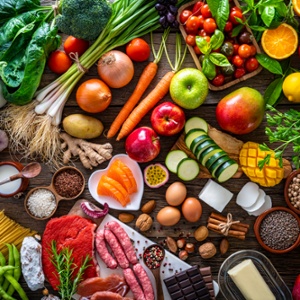We all have food cravings now and then, the urge to eat something we enjoy. Sometimes a smell, advert or memory can trigger a strong need for a specific food or meal. When you can manage those cravings and maintain a balanced diet, this is a normal part of a healthy relationship with food.
Food cravings can become a problem when they feel unmanageable. You may have a particular go-to food craving high in salt, sugar or fat. You might go out of your way to eat this food. This may have led you to eat more than you planned or not be able to stop eating this food when you are full, and may contribute to difficulty managing your weight.
Breaking your food cravings
Food cravings are different to feeling hungry. Having a regular eating routine and not skipping meals can help you recognise when you are hungry and full, and when your urge to eat is down to your craving and not hunger. You can use the hunger score to help. Sometimes we think we are hungry when we are thirsty. So try to stay hydrated too.
Think about your triggers
When do they happen? What time of day is it? Where are you? How are you feeling? Have you just eaten, or can you see the food that is the trigger? It may help to write this down:
- I want to eat this food when ______________________.
- I want to eat this food because ____________________.
By identifying your triggers, you can plan what to do when you have a food craving.
You could try to keep busy and distract yourself with a hobby, activity or contact a friend. Think about what you enjoy and things that will work for you.
- When I have my food craving, I will ________________.
Move the food out of sight if you can. You might find it helpful to think about healthier swaps that could replace the foods you crave.
If food cravings are linked to your mood, you might need support for dealing with your emotional wellbeing first.
Think about when and why you have a food craving. Then make a plan thinking about what is right for you.
Further support
Setbacks are normal and we will all have them. See our getting back on track page for support with how get through them.
Don’t be afraid to ask for help. If you think you can’t cope with your food craving, it’s getting in the way of daily life, or you are hiding your eating from others, you may need more support. Contact your GP to discuss this. You can also access information and support through BEAT.






